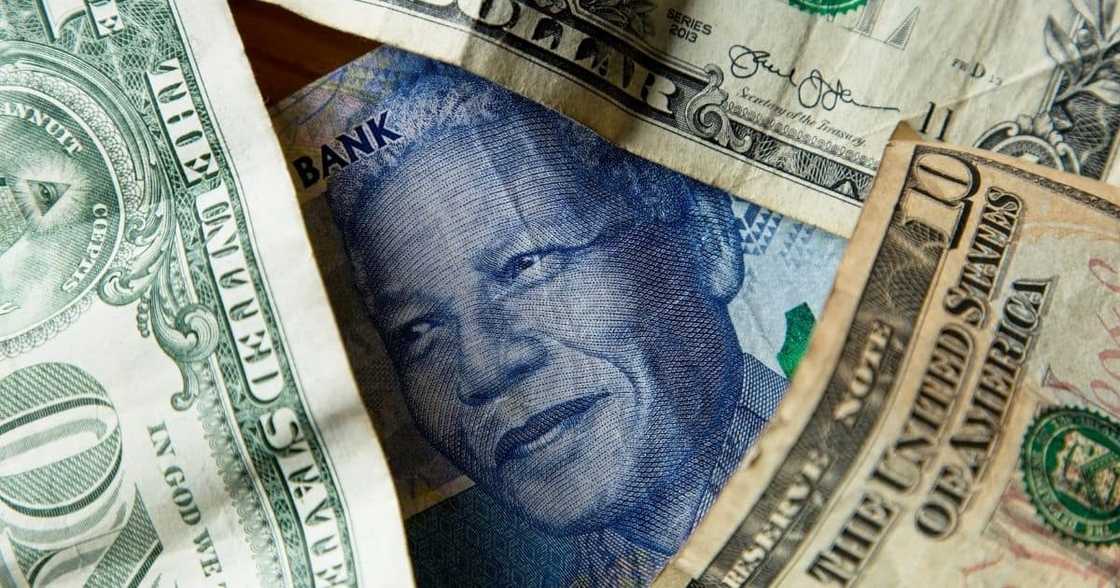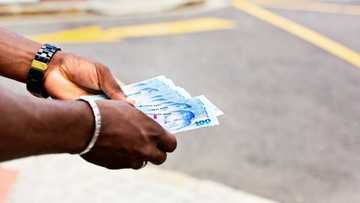Rand Breaks R15 to the Dollar, Weakest Exchange Since March with Repercussions for SA
- The rand broke R15 to the dollar on Thursday, 19 August, just three hours after the Johannesburg Stock Exchange (JSE) opened for trading
- On Wednesday, 18 August, the JSE had a five-hour outage due to a record R145 billion in trading, which caused a massive delay
- The rand is now at its weakest level since March 2021 where it traded R15 as well; this is a big knock to the economy
PAY ATTENTION: Click “See First” under the “Following” tab to see Briefly News on your News Feed!
The South African rand broke the R15 to the dollar level on Thursday, 19 August, trading at R15.03 to the US dollar. This happened just three hours after the Johannesburg Stock Exchange (JSE) opened. At the time of writing this report, the rand was trading at R15.18 to the dollar.

Source: Getty Images
The dollar is continuing to strengthen, thus weakening the rand. Expectations of an increase in interest rates have reportedly been decreased given a better-than-forecast consumer price inflation rate for July. The rand has reached its weakest level since March, according to Moneyweb.
According to SABC News, on Tuesday, trading on the JSE was delayed. This was due to the large trading volumes that extended to a record R145 billion. The trading still needs to be processed.
A report by Bloomberg revealed that the JSE was out for five hours and prevented trade in stocks. The publication wrote that the outage was not a good signal for the stock market, especially in a country that needs to bring in foreign investment to assist with growth and lessen unemployment.
Enjoy reading our stories? Download the BRIEFLY NEWS app on Google Play now and stay up-to-date with major South African news!
However, this is good news for the small percentage of South Africans who earn in dollars, meaning they get more rands for their wages.
Rand slumps, weakest level in 2 months amid protests, July report
Previously, Briefly News reported that the rand fell to its lowest level versus the dollar in more than two months as violent protests continued in parts of South Africa following the arrest of former President Jacob Zuma weeks ago.
In the country's two wealthiest regions, Gauteng and KwaZulu-Natal, violent protests shut down businesses and disrupted transportation networks, according to BusinessTech.
The rand fell by 1.4% against the dollar since 30 April and it was trading at R14.47 to the dollar at the time. Analyst at Rand Merchant Bank in Johannesburg Siobhan Redford said that the South African Government needed to take action to stop the current violent protests that swept over the Gauteng and KwaZulu-Natal provinces, according to a report by Fin24.
The violent protests were compounded by the extension of lockdown adjusted Level 4, which saw businesses struggle to stay afloat and robbed millions of people of their income in a country with a 32.6% unemployment rate.
Source: Briefly News



